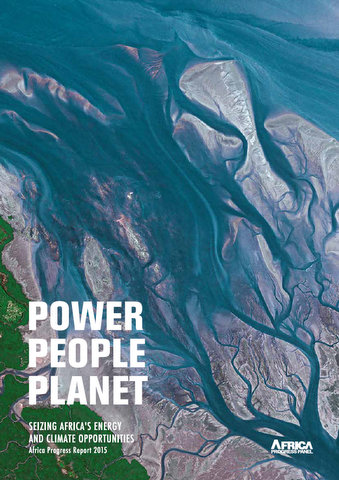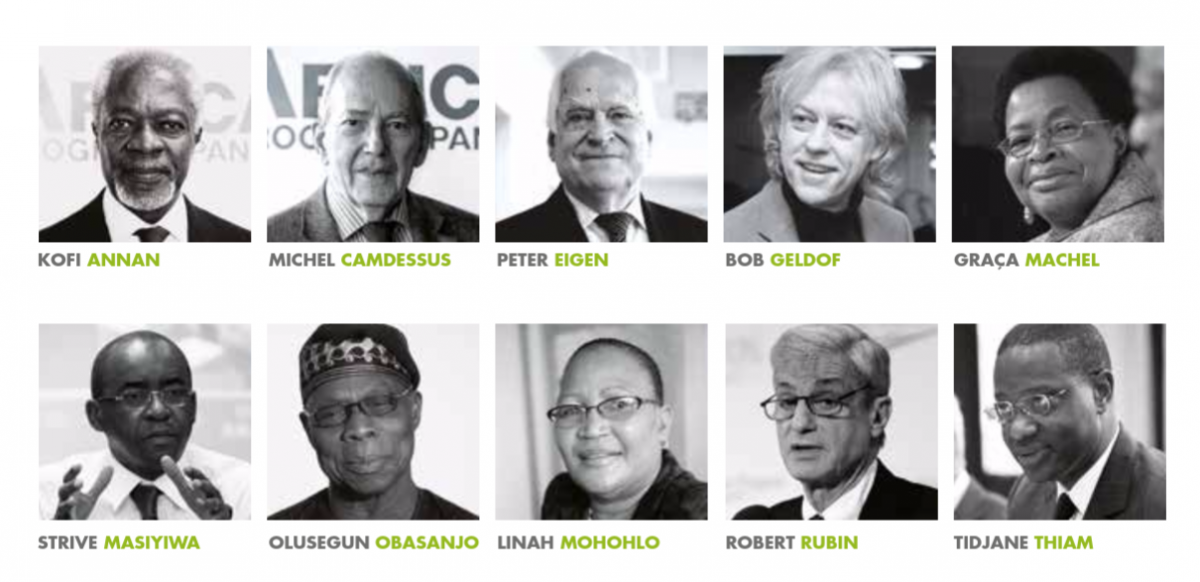Africa Progress Panel Report (2015) Recommends Focus on Rural and Public Transport to Target Climate Change and Unlock Africa’s Energy Potential
 The latest annual Africa Progress Report, Power, People, Planet: Seizing Africa’s Energy and Climate Opportunities, published by the Africa Progress Panel (APP), describes how African governments, the international public and the private sector can transform the region’s energy landscape by expanding energy access through reform, investment and innovation while leading on climate action by leapfrogging into renewable technologies and improving energy efficiency. Chaired by Kofi Annan, former Secretary-General of the United Nations and Nobel Laureate, the APP is a coalition of key stakeholders from the public and private sector that advocates evidence-based decision-making on public policy issues across the continent. The report shows that low-carbon, climate-resilient development can stimulate economic growth and reduce poverty on the continent by removing cost barriers to energy consumption and transport, especially in rural areas. Better and more accessible energy in addition to improved transport networks will raise agricultural productivity, conserve land and forests, and foster sustainable rural and urban communities.
The latest annual Africa Progress Report, Power, People, Planet: Seizing Africa’s Energy and Climate Opportunities, published by the Africa Progress Panel (APP), describes how African governments, the international public and the private sector can transform the region’s energy landscape by expanding energy access through reform, investment and innovation while leading on climate action by leapfrogging into renewable technologies and improving energy efficiency. Chaired by Kofi Annan, former Secretary-General of the United Nations and Nobel Laureate, the APP is a coalition of key stakeholders from the public and private sector that advocates evidence-based decision-making on public policy issues across the continent. The report shows that low-carbon, climate-resilient development can stimulate economic growth and reduce poverty on the continent by removing cost barriers to energy consumption and transport, especially in rural areas. Better and more accessible energy in addition to improved transport networks will raise agricultural productivity, conserve land and forests, and foster sustainable rural and urban communities.

Members of the Africa Progress Panel (Source: APP)
Due to their increasing affordability, speedy delivery and potential for decentralization, solar, wind and geothermal power are increasingly important for grid development and they can even reach rural areas beyond the grid. Notwithstanding the importance of increased power generation from renewable sources, the role of the transport sector remains crucial to developing a low-carbon future for the continent. This is because emissions from transportation are projected to be the fastest growing contributor to GHG emissions by 2030. Hence, the report identifies several opportunities to raise productivity and reduce poverty while cutting GHG emissions from the transport sector.
First, well-planned urbanization supported by extensive public transport systems provides a critical avenue by which to take action on climate change. By embracing compact urban development and through the strategic location of multi-modal public transport infrastructure, African leaders can ensure increased neighborhood energy efficiency and decouple future economic growth from GHG emissions. Deploying cleaner fuels such as natural gas in public transport vehicles will also help to achieve significant emission reductions.
In addition, African governments should encourage the development of rural infrastructure, including crop storage, agro-processing and transport networks to stimulate rural economies and facilitate easy movement of agricultural produce. Combined with renewable and off-grid energy solutions, these communities can increase their productivity. They can also invest in waste-to-energy programs and biofuel production. Finally, the removal of fossil energy subsidies will also help to curb fuel consumption and reduce GHG emissions from the transport sector. These subsidies may then be redirected to improve urban mobility and increase investment in public transport.
Although the various policy options available to expand energy access and foster sustainable transport are promising, their adoption is often constrained by financing gaps. African countries can achieve this vision of a low-carbon future, strongly underpinned by advances in sustainable transport, by mobilizing climate finance and partnering with the private sector. Ahead of the 2015 Paris Climate Conference fast approaching, it is imperative that African countries show strong leadership and outline clear strategies for scaling up current efforts in the energy and transport sectors within their Intended Nationally Determined Contribution (INDC) plans.
For more information about the Africa Progress Panel and its report series, please visit their website.